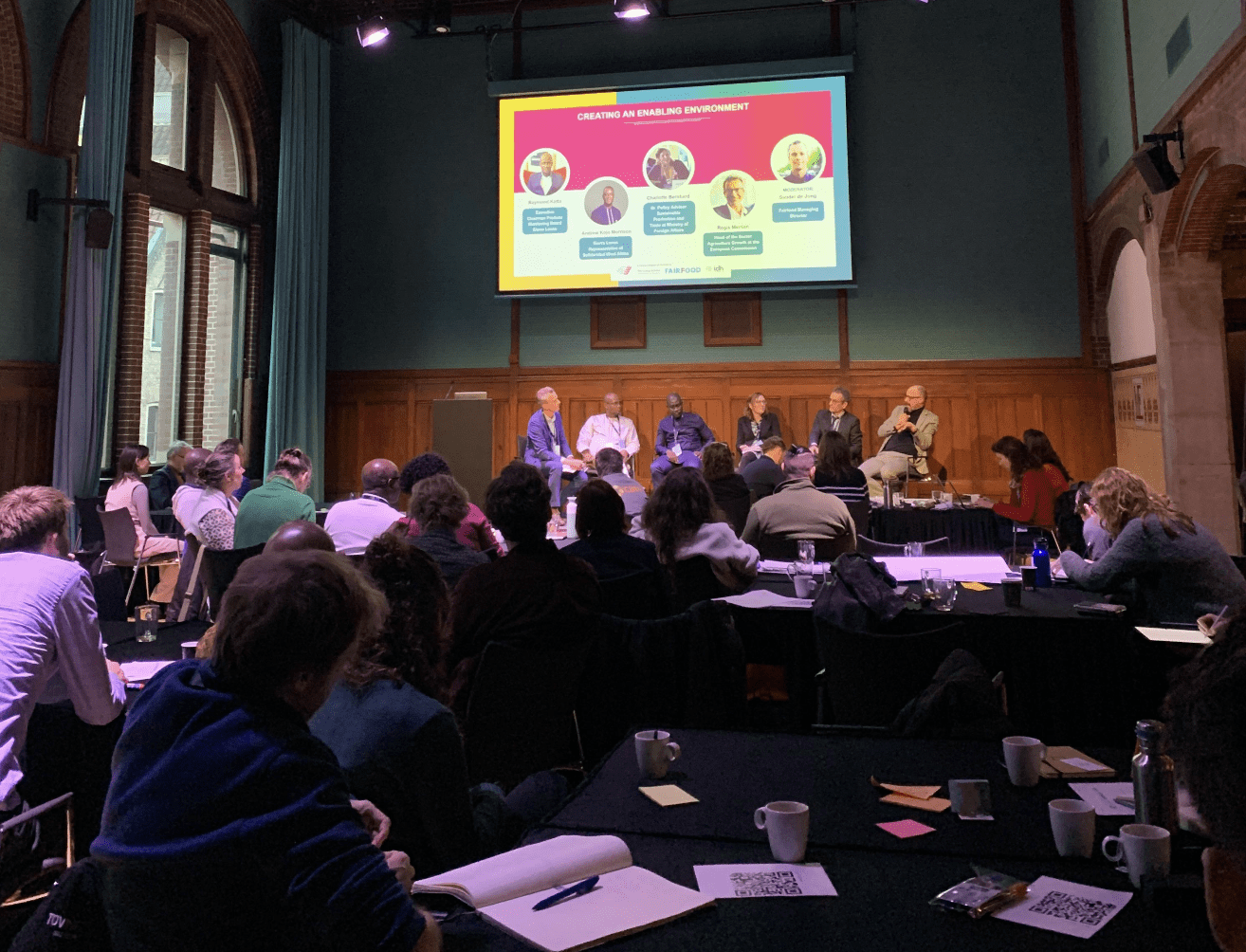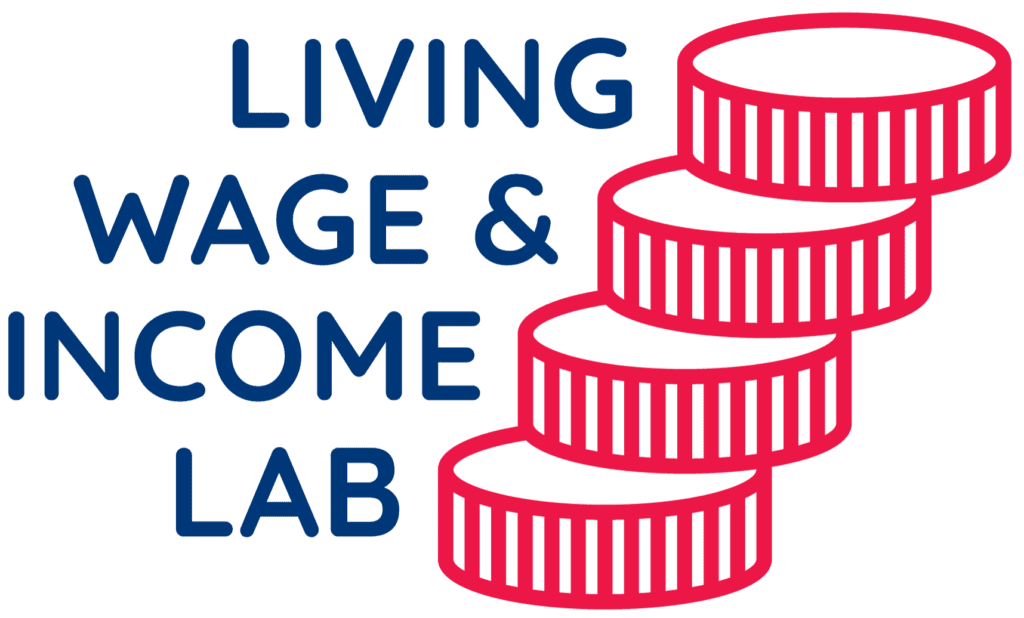Thursday, January the 18th – Indeed, the day of The Storm – we celebrated the two-year anniversary of the Living Wage Lab. In style, with a breakfast session in the Nieuwspoort in The Hague. For everyone who made it: we sincerely hope that you have returned home safely and on time. For everyone who could not be there: a report on the session below.
The breakfast session was the moment we got to hand over our anniversary publication to Willem Lageweg, Quartermaster and Initiator of the Transition Coalition for Food, and Kirsten van den Hul, Member of Parliament for the Dutch party PvdA. In this publication, that was made in collaboration with Hans van de Veen of Impact Reporters, through interviews and quotes, we look back on the successes of Lab participants, of the Lab in general and we discuss how to move foreward.
Van den Hul called the Living Wage Lab “a wonderful project with a diverse field of participants”. “It is very special that business, policy makers and NGOs are are willing to sit down with one another, to tackle an important issue such as this, that needs tackling in an interdisciplinary manner,” Van den Hul said. “Working on a living wage is not only a smart investment but also the right investment.” It’s one of the reasons she wants to include the subject of ‘living wage’ in her work as MP. Besides, she strives to not only continue the work of former Minister for Aid and Trade, Lilianne Ploumen, on this subject but take it to a higher level. According to Van den Hul, at the moment living wages are not sufficiently secured in the IMVO sector covenants.
Willem Lageweg noted that actual change is currently being made by smaller, innovative companies. Supermarkets and corporations are still lacking – they often hide behind the consumer, who according to them does not want to pay more. He concluded with the wise words: “If we do not intervene on price, we remain marginal in terms of
sustainability.”

Christmas Stars
During the session, various successful living-wage initiatives by lab partners were discussed. Olav Boenders, co-owner and founder of Wagagai was the first to tell his story.
Wagagai, one of the largest cuttings producers in the world, offers its employees good working conditions such as free lunch, transport allowances and medical care trough its own Wagagai Health Centre. Yet, according to Boenders, when he asks his employees what they would like most, they all reply with the same answer: a higher wage.
To achieve this, the company joined forces with Fairtrade International, together with its trader Selecta One. Within this partnership, a premium of 5 cents is charged on all Christmas Stars – one of the products of the company – that are sold with the Fairtrade logo. 4.5 cents go directly to the employees, the other 0.5 cents go to community projects. In 2017, the sale of 1 million Fair Trade Christmas stars yielded EUR 45,000 extra. At the beginning of this year, Boenders could inform his employees that they would receive an extra month worth of salary. “News that made them very happy, but also makes me feel ashamed,” Boenders said. It does not offer a structural solution: “I would like to give them much more.” This coming season he strives for a better result – therefore he cordially invites retail to join the project.
See for more information on the Wagagai project the following factsheets:
– The Story of Wagagai
– Towards a Living Wage at Poinsettia Farms

Coffee
Mark Kauw talked about the pilot project of Moyee Coffee, FairChain Foundation and Fairfood. The organizations want to make the coffee chain transparent with the use of blockchain. The Ethiopian coffee farmers behind Moyee’s coffee, are already receiving a relatively high price for their product. However, to the coffee label it is unknown whether the price they are paying is sufficient for the farmer and his/her family to make a decent living. To find out how Moyee – and with that, other coffee labels – performs, Fairfood is doing research on what a living wage looks like in the area where Moyee sources its coffee. Results of the pilot project will be shared with the coffee industry and consumers. Kauw expects interventions that will follow on this subject to focus on scaling up and improving the coffee yield through training.

The coming year
The Living Wage Lab wants to bring together an even larger group of participants this year. In addition, the way of working is slightly being altered: within the Lab, certain themes will be explored in specialized groups. By the end of 2018, the Lab hopes to have developed one or more tools to make it easier for parties to work on realizing a living wage. In the autumn, a conference will be held to share knowledge and lessons on living wage with interested parties.
Download the two-year anniversary publication of the Living Wage Lab




